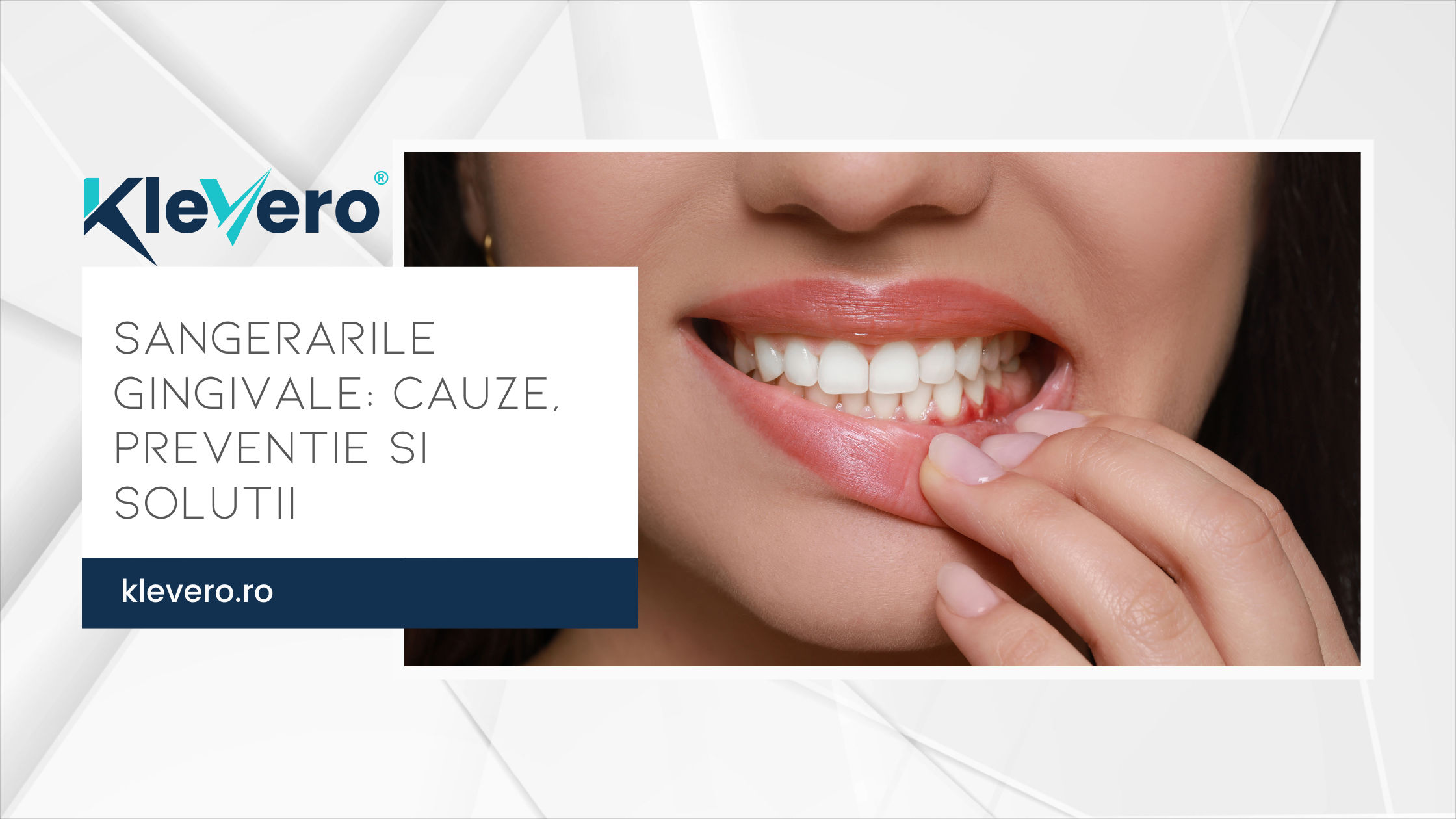Bleeding gums are a common problem that many people experience while brushing or flossing. Although often overlooked, they can indicate gum disease that needs attention. In this article, we will explore the causes of bleeding gums and effective ways to prevent and treat them.
What are gum bleeding?
Bleeding gums occur when your gums are irritated or inflamed. They can occur while brushing, flossing, or even spontaneously. Most often, they are a sign of gum inflammation (gingivitis), but they can also indicate more serious conditions, such as periodontal disease.
Causes of bleeding gums
-
Gingivitis – This is the most common cause of bleeding gums. Bacterial plaque that builds up on the teeth promotes inflammation of the gums, causing sensitivity, redness, and bleeding.
-
Periodontal disease – An advanced form of gum disease, this can affect the supporting bone of the teeth, leading to receding gums and persistent bleeding.
-
Incorrect brushing – Aggressive brushing or using a toothbrush with hard bristles can irritate the gums and cause bleeding.
-
Improper use of dental floss – Improper handling of dental floss can cause gum damage and bleeding.
-
Incorrect use of the mouthwash – Too much pressure can sensitize the gums and cause minor bleeding.
-
Nutritional deficiencies – Lack of vitamins C and K affects gum health and increases the risk of bleeding.
How do we prevent and treat gum bleeding?
-
Maintain rigorous oral hygiene – Brush your teeth twice a day, floss daily, and use antibacterial mouthwash to prevent plaque buildup.
-
Schedule regular dental checkups – Regular visits to the dentist contribute to the early detection of gum problems.
-
Adopt a balanced diet – Eating foods rich in essential vitamins helps strengthen gums.
-
Avoid risk factors – Quit smoking, reduce alcohol consumption, and avoid excess sugar.
-
Treat gum conditions – If you are experiencing gingivitis or periodontal disease, seek specialized treatment to prevent complications.
Conclusion
Bleeding gums should not be ignored, as they can signal gum disease that requires intervention. Through proper oral hygiene, a balanced diet, and regular visits to the dentist, we can effectively prevent and treat this problem, maintaining the health of our gums and teeth in the long term.



Shari:
Oral Hygiene and Nutrition: The Impact of Diet on Dental Health